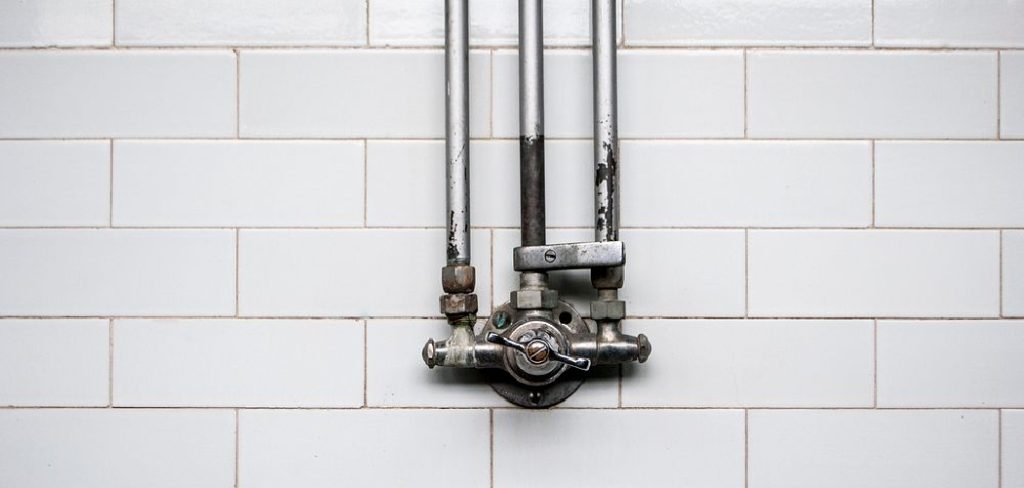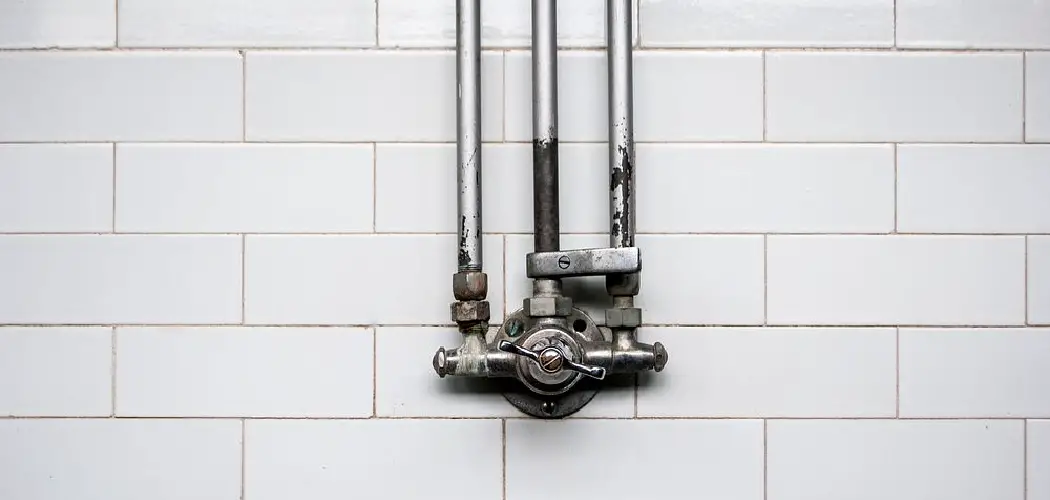Yes, pipe dope can be used on water lines. Pipe dope provides a reliable seal and prevents leaks.
Introducing pipe dope when working with water lines can significantly enhance their performance and prevent potential leaks. This essential sealing compound is an indispensable tool for plumbers and DIY enthusiasts alike. Pipe dope offers a reliable and durable seal, ensuring water lines remain leak-free for extended periods.
Whether it’s a small-scale household plumbing project or a large industrial installation, using pipe dope on water lines is a cost-effective and efficient solution. This compound creates a tight seal that withstands water pressure and effectively prevents leaks, saving time and preventing potential water damage. We will explore the usage and benefits of using pipe dope on water lines. So, let’s dive in and discover its versatility and effectiveness in ensuring leak-free plumbing systems.
What Is Pipe Dope?
If you’re a DIY enthusiast or someone involved in plumbing, you might have come across the term “pipe dope.” As the name suggests, pipe dope is a substance commonly used in plumbing applications. But what exactly is pipe dope? Let’s take a closer look.
Definition Of Pipe Dope
Pipe dope, also known as pipe joint compound, is a sealant used to create a watertight and airtight seal between threaded pipe fittings. It is typically applied to the threads of pipes, valves, fittings, and other components to prevent leaks and enhance the tightness of the joint.
Common Types Of Pipe Dope
There are several types of pipe dope available in the market, each with its own unique characteristics and applications. Here are some common types you may come across:
| Type | Description |
|---|---|
| Teflon Tape | A thin, non-hardening tape made of PTFE (polytetrafluoroethylene) that can be wrapped around threaded pipe fittings. It provides a reliable seal and is easy to apply. |
| Pipe Thread Compound | A thick paste-like substance that is applied directly to the threads. It contains lubricants and fillers to enhance the sealing properties and prevent galling or seizing of the threads. |
| Hemp and Paste Compound | A traditional option consisting of a mixture of hemp fibers and a paste compound. The hemp fibers are wrapped around the threads, and the paste compound is applied on top to seal the joint. |
When it comes to choosing the right type of pipe dope for your specific application, it’s essential to consider factors such as the type of pipes, the fluids or gases flowing through them, and the operating conditions. Consulting a professional or referring to manufacturer recommendations can help ensure the best results.
Now that you have a better understanding of pipe dope and its different types, you can make informed decisions when working with water lines and plumbing fittings. Remember to follow proper application techniques and adhere to safety guidelines to achieve leak-free and durable pipe joints.

Can Pipe Dope Be Used On Water Lines?
Can Pipe Dope be Used on Water Lines?
When it comes to plumbing projects, ensuring a secure and leak-free connection is of utmost importance. Pipe dope, also known as thread sealant, is a popular choice among DIY enthusiasts and professionals alike. However, when it comes to using pipe dope on water lines, it’s essential to consider the compatibility and potential risks involved.
Compatibility Of Pipe Dope With Water Lines
Ensuring the compatibility of pipe dope with water lines is crucial to avoid any issues down the line. Pipe dope generally consists of a paste-like compound that is applied to threads to create a tight seal. While it is commonly used on metal fittings and pipes, it may not be the best option for water lines.
Water lines, especially those carrying potable water, require a reliable and safe sealant. In this case, it is recommended to use Teflon tape or thread sealant specifically designed for water lines. These products are formulated to withstand the unique conditions and potential contaminants associated with water plumbing systems.
Risks Of Using Pipe Dope On Water Lines
Using pipe dope on water lines can pose certain risks that may compromise the integrity of the plumbing system. One potential issue is the presence of chemicals in certain pipe dope formulations that may leach into the water supply, potentially causing health concerns.
Additionally, pipe dope can harden over time, making it difficult to disassemble and repair water lines if necessary. This can lead to increased labor and costs when it comes to maintenance or future renovations.
In conclusion, while pipe dope may be suitable for certain applications, it is advisable to use products specifically designed for water lines when working on plumbing projects involving potable water. By prioritizing compatibility and avoiding potential risks, you can ensure a safe and reliable water plumbing system that meets all necessary standards.
Alternatives To Pipe Dope For Water Lines
Pipe Dope is not recommended for use on water lines as it may contaminate the water supply. Instead, consider using alternatives such as Teflon tape or pipe thread sealant to ensure a safe and secure connection.
When it comes to sealing the threads on water lines, pipe dope has long been the go-to choice for many. However, if you’re looking for alternatives to pipe dope, there are other options available that can effectively seal your water lines without the messy and time-consuming application process. In this article, we’ll explore two popular alternatives: Teflon tape and pipe thread sealants.
Teflon Tape
Teflon tape, also known as plumber’s tape or PTFE tape, is a thin white tape that is commonly used to seal pipe threads. It is made from a strong and flexible material called polytetrafluoroethylene (PTFE) that provides an excellent seal against leaks.
Using Teflon tape is simple and quick. Here’s how you can use it to seal your water lines:
- Ensure that the threads on both the male and female connectors are clean and dry.
- Hold the end of the Teflon tape against the starting point of the threads and wrap it around the threads in a clockwise direction.
- Wrap the tape tightly, but avoid stretching it too much as it may tear or become thin.
- Continue wrapping the tape around the threads for at least three full rotations.
- Once wrapped, press the tape into the threads to ensure a secure seal.
- Finally, reassemble the connections, making sure not to cross-thread.
Pipe Thread Sealants
Another alternative to pipe dope is the use of pipe thread sealants. These sealants come in liquid or paste form and are specifically designed to create a tight seal on pipe threads. Some popular types of pipe thread sealants include:
| Type | Description |
|---|---|
| Teflon-based sealants | These sealants contain Teflon particles that fill in the gaps between the threads, creating a reliable seal. |
| PVC pipe sealants | These sealants are specifically formulated for use with PVC pipes and fittings. |
| Threadlockers | Threadlockers not only seal pipe threads but also provide resistance against vibration and loosening. |
| Anaerobic sealants | These sealants cure in the absence of air and are ideal for sealing larger threads or where high pressure is involved. |
When using pipe thread sealants, it’s important to follow the manufacturer’s instructions for application. Generally, the process involves cleaning the threads, applying the sealant to the male threads, and then assembling the connections. As the sealant cures, it forms a tight bond that prevents leaks.
So, if you’re looking for alternatives to pipe dope for sealing your water lines, consider using Teflon tape or pipe thread sealants. Both options are effective, easy to use, and can provide a reliable seal for your water system.
Frequently Asked Questions On Can You Use Pipe Dope On Water Lines
Can Pipe Dope Be Used On Water Lines?
Yes, pipe dope can be used on water lines. It is a thread sealant that helps create a watertight seal between pipe connections. However, it is important to use the right type of pipe dope that is compatible with water and the pipes being used.
Additionally, proper application techniques should be followed to ensure a secure and leak-free connection.
Is Pipe Dope Better Than Teflon Tape For Water Lines?
Pipe dope and Teflon tape both serve the purpose of creating a seal on pipe connections. While Teflon tape is a popular choice, pipe dope offers certain advantages. It is more forgiving when it comes to imperfect threads and provides a stronger seal against leaks.
However, it is important to choose the right type of pipe dope suitable for water lines for optimal results.
How Do You Apply Pipe Dope To Water Lines?
To apply pipe dope on water lines, follow these steps:
1. Clean the threads of the pipe and fitting using a wire brush. 2. Apply a thin and even layer of pipe dope to the male threads. 3. Avoid applying too much dope as it can squeeze into the line. 4. Make sure the entire threaded area is coated. 5. Assemble the pipe and fitting, ensuring proper alignment. 6. Tighten the connection using a wrench to create a secure seal.
Conclusion
To sum up, pipe dope can be used on water lines to ensure a reliable and leak-free connection. The application of pipe dope creates a tight seal, providing protection against potential leaks and reducing the risk of corrosion. It is important to follow manufacturer guidelines and consult a professional if unsure.
By using pipe dope correctly, you can enhance the longevity and efficiency of your water line system.

